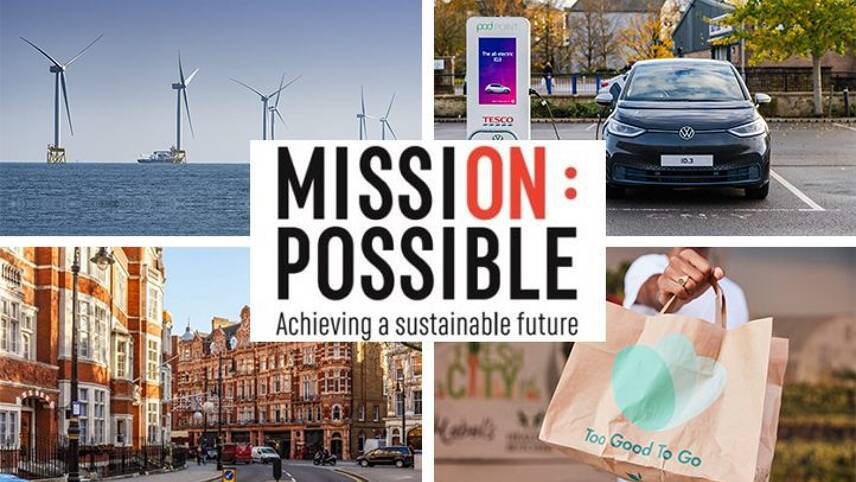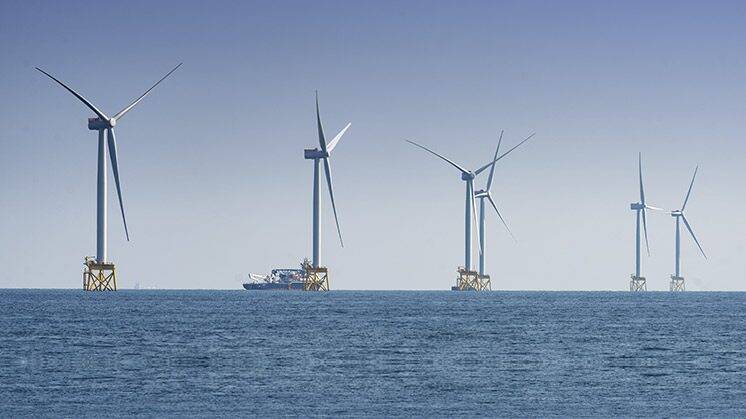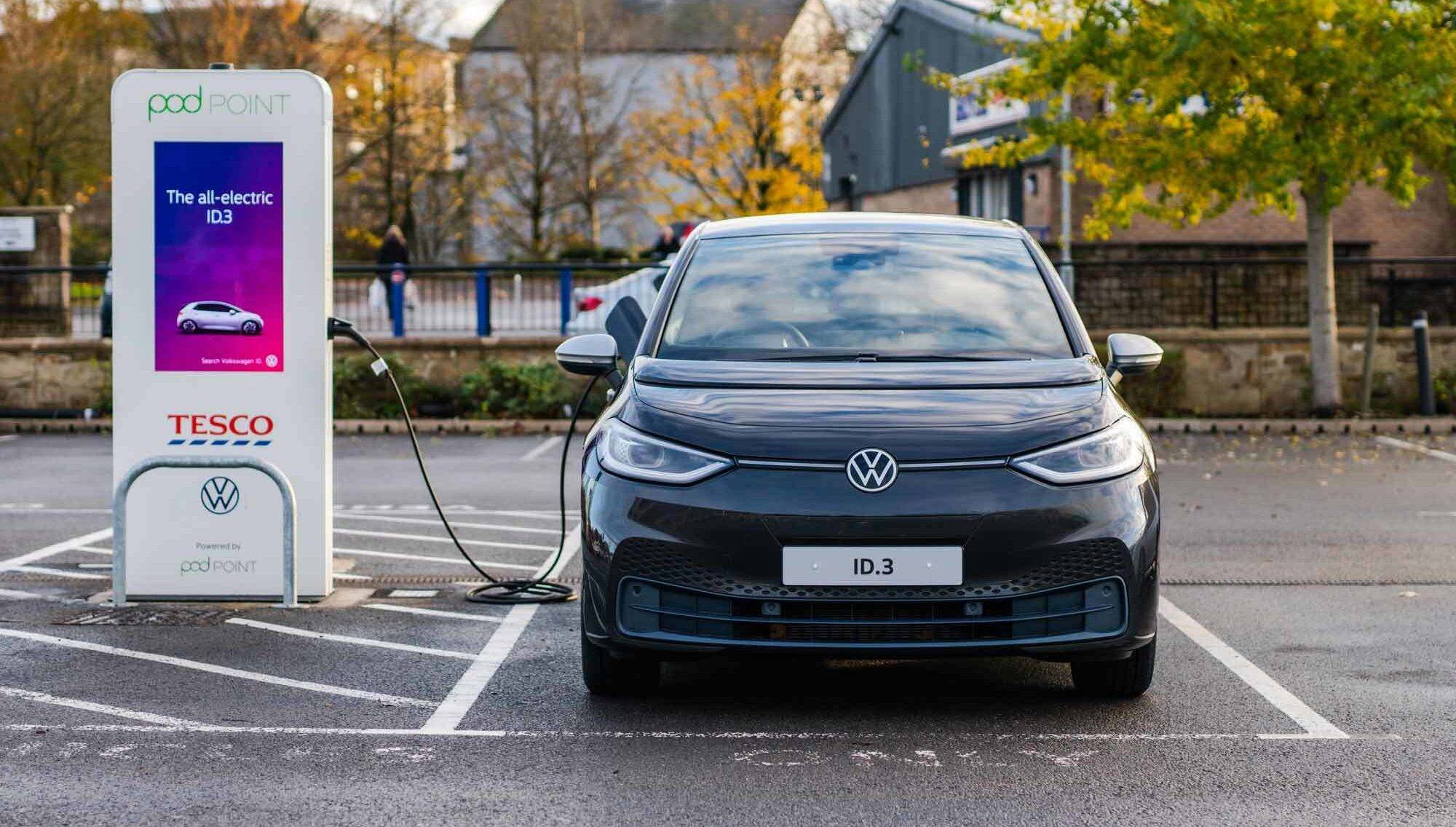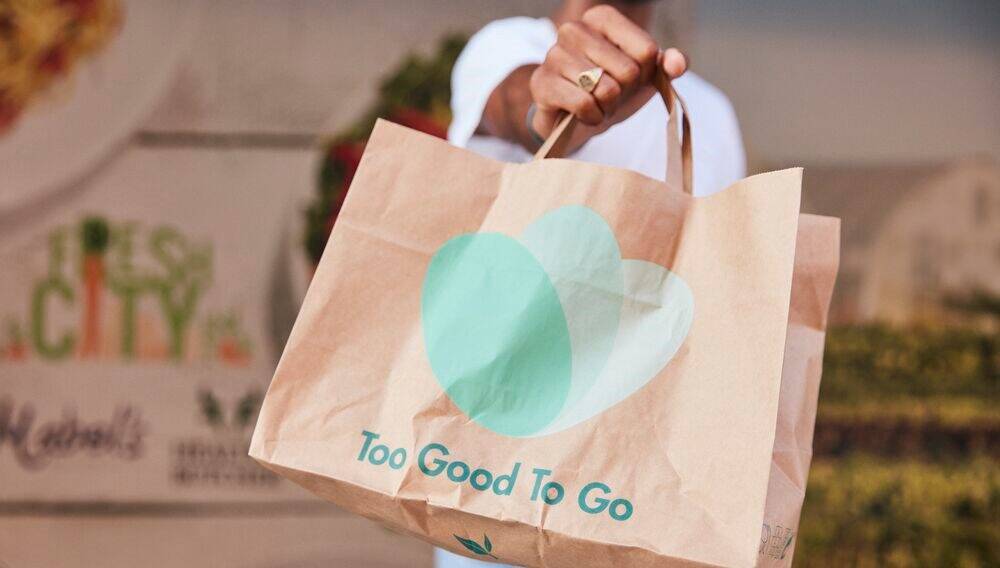Register for free and continue reading
Join our growing army of changemakers and get unlimited access to our premium content

Published every week, this series charts how businesses and sustainability professionals are working to achieve their ‘Mission Possible’ across the campaign’s five key pillars – energy, resources, infrastructure, mobility and business leadership.
The energy price crisis has dominated headlines in the UK this week, with the price cap increase resulting in far higher electricity and gas bills for homes and businesses. As we continue to await the energy security strategy, there are hopes for renewed ambitions on energy efficiency and clean power.
And, all the while, leading businesses, cities, states and regions are turning environmental ambitions into action. Here, we round up five positive sustainability stories from this week.
ENERGY: Green light for two major offshore wind farms off Suffolk Coast
Image: Iberdrola
Here in the UK, we’re continuing to await the new energy security strategy. Reports indicate that the Prime Minister is ready to increase targets and funding for nuclear, onshore wind and offshore wind.
Meanwhile, the Government granted planning consent on Thursday (31 March) for the development of two offshore wind farm projects off the coast of East Anglia, which will collectively host 142 turbines and boast a capacity of 1.5GW.
Business and Energy Minister Kwasi Kwarteng said in a statement that he believes the wind farms – East Anglia ONE North and East Anglia TWO 0 will make a “substantial contribution towards the delivery of renewable energy”. Under Kwarteng, the Government has pledged to bring all unabated fossil-fuelled electricity generation in the UK offline by 2035.
A statement responding to the decision, issued by ScottishPower, reads: “Offshore wind is exactly what’s needed to get more clean, green home-grown electricity onto the grid, so we can reduce our dependency on gas and reach net-zero.
“We’ll now fully assess what the detail of the decisions means in practice for our projects, our plans to generate enough affordable green electricity to power almost three million homes, and our ambition to support up to 7,000 jobs.”
RESOURCES: Lucy & Yak forges fashion reuse and recycling partnership with Beyond Retro
Fashion is one of the world’s most wasteful sectors; according to the Ellen MacArthur Foundation, a bin lorry of clothing is landfilled or burned every second, and the equivalent of less than 2% of the clothes made every year are properly recycled every year.
Repair and resale are, therefore, becoming an increasingly popular solution. Independent fashion brand Lucy & Yak, best known for its dungarees, has partnered with vintage fashion retailer Beyond Retro to launch a clothing recirculation system.
Customers are encouraged to bring in their worn Lucy & Yak clothing to Beyond Retro stores, in exchange for a Lucy and Yak Voucher. Beyond Retro will sell items that are collected in good condition, carry out repairs where possible, and, where this is not possible, send the garment for recycling through Love Not Landfill.
“At Lucy & Yak, we have always thought big when it comes to circularity, but as a small, fast-growing business, resource and space limit what we are able to achieve on our own; collaboration is key to solving the problems of this industry,” said Lucy and Yak co-founder Lucy Greenwood.
MOBILITY: EV charging points installed at Tesco’s 500th store
Image: Pod Point
Back in 2018, Tesco partnered with Volkswagen in a bid to roll out more than 2,000 Pod Point electric vehicle (EV) charging bays across its estate by 2021. Triodos Bank then joined the initiative, committing to finance the installation of charging points at 600 stores.
This week saw Tesco announce a further milestone for the project – the installation of charging ports at its 500th store, Tesco Extra in Inverness. The supermarket chain now hosts more than 1,000 charging ports, including 100 rapid chargers. The slower chargers are free to use while customers must pay to use the 50kW rapid chargers.
Tesco also posted an update on charging point use, revealing a 300% increase in charging sessions over the last year. The network has been used more than two million times now.
“The partnership is continuing to make a significant and very visible contribution to the UK’s charging infrastructure, giving drivers the confidence to transition to electric,” said Pod Point founder and chief executive Erik Fairbairn.
Last month, the UK Government published its much-anticipated EV Infrastructure Strategy, detailing plans to deliver on an ambition to increase public EV charging points tenfold by 2030. Read edie’s coverage here.
THE BUILT ENVIRONMENT: Grosvenor launches net-zero mentoring programme for suppliers
Tackling operational greenhouse gas emissions has been a priority for many businesses in the built environment sectors for some years now. But research has shown that far more will need to be done to measure and reduce embodied carbon, by engaging the supply chain, in the coming years.
With this in mind, Grosvenor Property UK has launched a net-zero mentoring programme for its suppliers, beginning with 38 suppliers in the first instance. The firm has partnered with the City of London Corporation’s Heart of the City initiative to deliver the programme, which will help suppliers to develop, receive validation for, and deliver, science-based targets to reduce emissions.
Grosvenor Property UK’s net-zero pathway notably includes a commitment to reduce emissions across all scopes by at least 52% by 2030, against a 2019 baseline. Supplier emissions account for around half of its carbon footprint, making the supply chain a key focus point. The business will not be awarding contracts in excess of £1m to suppliers without verified science-based targets from 2023.
“Our SME partners are incredibly supportive of our environmental ambitions, but resource is often a barrier to their own progress,” said Grosvenor’s sustainability programme director Victoria Herring.
“The response to the programme has been so significant that we have split participants in to two groups. Combined with the commitments of our largest suppliers, the success of this collaborative effort will have a meaningful impact on our Scope 3 emissions and drive change across the built environment value chain.”
BUSINESS LEADERSHIP: Too Good to Go diverts 10 million bags of surplus food from waste
Between 33% and 40% of all food produced globally is wasted each year. This waste comes with a considerable climate and resource impact, and solving this trend would undoubtedly also contribute to social development.
It is positive news, then, that Too Good to Go recently celebrated the collection of its ten-millionth ‘Magic Bag’. Magic Bags are listed on its app by partner businesses and contain surplus items that are left unsold at the end of the working day. Customers are then invited to buy a bag at a discounted price, with each bag containing around one kilogram of food.
Brands offering Magic Bags include Costa Coffee, Greggs and Morrisons, as well as an array of independent local businesses.
Too Good To Go’s co-founder Jamie Crummie said: “It’s amazing to have hit this incredible milestone of ten million Magic Bags saved in the UK. Each and every one of our users and partner businesses have contributed to this achievement and I want to say a huge thank you to them. Saving food from going to waste is one of the most important steps we can take to combat climate change and this milestone goes to show that individual small changes really can add up to have a huge impact.”






